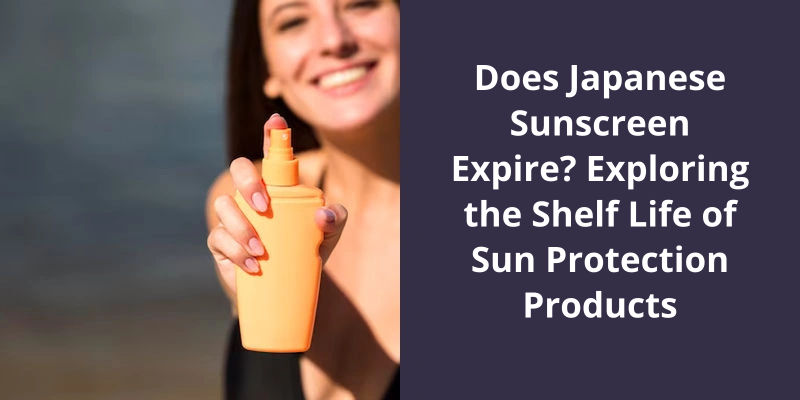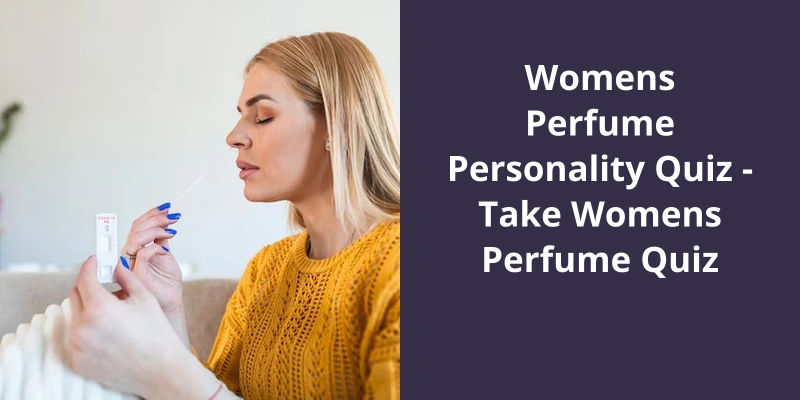Yes, Japanese sunscreen does expire. Similar to other cosmetic products, sunscreens from Japan have a shelf life, often around three years from the manufacturing date. However, once opened, they are typically effective for about six to twelve months depending on the product. This is why it’s crucial that you pay attention to the expiry dates to ensure the product’s effectiveness. When sunscreen expires, it may not provide the expected level of protection, which can lead to skin damage. If your sunscreen doesn’t have a printed expiration date, a change in color, consistency, or smell may indicate that it’s time to replace it.

Does Sunscreen Expire if Never Opened?
This means that if you stumble upon a pristine, unopened bottle of sunscreen thats been in your medicine cabinet for years, it might not be as effective at protecting your skin from harmful UV rays as it would have been if you’d used it soon after purchase.
The way sunscreen works is that it forms a barrier on your skin that reflects or absorbs harmful UV rays, preventing them from penetrating into your skin and causing damage. Over time, the active ingredients in sunscreen can degrade, making them less effective at forming this protective barrier. This is why it’s important to check the expiration date on your sunscreen before using it, even if it’s never been opened.
Some sunscreens may also separate or thicken as they age, which can make them harder to apply evenly and reduce their effectiveness. Additionally, sunscreen thats been exposed to high temperatures or direct sunlight may have degraded more quickly than sunscreen thats been kept in a cool, dark place. This is another reason why it’s important to store your sunscreen properly and not leave it in places where it can be exposed to extreme heat or sunlight.
If youre not sure whether your unopened sunscreen is still good, it’s probably best to err on the side of caution and buy a new bottle. Using expired or ineffective sunscreen can put your skin at risk of sunburn, premature aging, and even skin cancer. Remember to always apply sunscreen liberally and reapply it every two hours when youre outside, especially if youve been swimming, sweating, or toweling off.
Ultimately, taking care of your skin and protecting it from the sun is important year-round, not just during the summer months. Whether youre heading to the beach or going for a walk in the park, make sure youre using sunscreen thats fresh, effective, and has a high SPF rating. And don’t forget to wear a hat, sunglasses, and protective clothing to minimize your exposure to harmful UV rays.
How to Properly Store Sunscreen to Prevent Degradation
- Store sunscreen in a cool, dry place
- Avoid exposing sunscreen to direct sunlight
- Don’t store sunscreen in a car or other hot environment
- Make sure the sunscreen lid is tightly closed
- Check the expiration date before use
It’s essential to keep your skin protected from the sun’s harmful rays, but using expired sunscreen could do more harm than good. Not only can it lead to skin irritation and breakouts, but it may also increase your risk of allergic reactions. Additionally, bacteria growth is a concern with any sunscreen product, and expired sunscreen is more likely to harbor harmful bacteria. So, can expired sunscreen cause acne? Read on to find out.
Can Expired Sunscreen Cause Acne?
One concern with using expired sunscreen is the potential for acne breakouts. Sunscreens often contain oils, waxes, and other ingredients that can clog pores and lead to breakouts if theyre not properly washed off.
As the product breaks down, it may release chemicals or compounds that can cause redness, itching, and other forms of irritation.
To avoid these risks, it’s important to check the expiration date on your sunscreen and replace it regularly. It’s also a good idea to store your sunscreen in a cool, dry place to help preserve it’s efficacy and minimize the growth of bacteria. If you notice any signs of irritation or breakouts after using sunscreen, stop using it immediately and speak with your dermatologist.
By taking these steps, you can enjoy the sun safely and reduce your risk of skin damage and other skin concerns.
How to Properly Store Sunscreen to Extend It’s Shelf Life
Sunscreen should be stored in a cool, dry place away from direct sunlight. It’s also important to check the expiration date and discard any sunscreen that’s expired. Keeping sunscreen at the right temperature and away from sun exposure can help extend it’s shelf life.
Now that we know Biore sunscreens can last up to three years when stored correctly, it’s important to understand how we can tell if they’ve expired.
Do Biore Products Expire?
However, once you open a Biore product, it’s shelf life decreases significantly. Exposure to air and other environmental factors can cause the active ingredients to break down, making the product less effective over time. In general, it’s recommended that you replace your opened sunscreen every six months to ensure maximum protection from the suns harmful rays.
It’s also worth noting that not all Biore products have the same expiration date. Some ingredients, such as zinc oxide and titanium dioxide, have a longer shelf life than chemicals like avobenzone and octinoxate.
Expired sunscreens can potentially harm your skin rather than protect it. It can also cause breakouts, irritations, or rashes, especially if you’ve sensitive skin or allergies. Therefore, it’s essential to dispose of any expired Biore sunscreen properly.
You should avoid exposing your Biore sunscreen to extreme temperatures, such as leaving it in a parked car or exposing it to direct sunlight. Similarly, it’s essential to keep the sunscreen lid tightly closed and avoid exposing it to air whenever possible. You can also consider storing your sunscreen in a cool, dark place, like a drawer or cabinet.
The Effects of Using Expired Skincare Products Beyond Sunscreen.
Using skincare products past their expiration date may lead to negative effects on your skin as they may no longer be effective or may have become contaminated, potentially causing irritation, breakouts or infections. It’s important to always check the expiration dates on your skincare products and dispose of any expired ones.
It’s important to routinely check the expiration date on your sunscreen to ensure that it still offers sufficient protection against harmful UV rays. However, if you’re having trouble locating the expiration date, don’t worry. Some sunscreens may not have a clear expiration date, but there are other ways to determine whether your sunscreen is expired. Read on to learn more.
Where Is the Expiry Date on Sunscreen?
However, not all sunscreens will have an expiry date displayed in an obvious manner. In such cases, you’ll need to understand how to decode the information that’s printed on the package. Sunscreen products generally have a shelf life of three years, which means that if unopened and stored properly, they’ll remain safe and effective for use until three years from the date of manufacture.
The lot number contains valuable information that can be used to determine the manufacturing and expiry dates of the product. Some sunscreen manufacturers include a production date code on the package, which is a combination of letters and numbers that indicate when the product was manufactured. This code can be a bit tricky to decipher, but with a little knowledge, you can easily figure out the expiration date.
If you find that the sunscreen is becoming harder, clumpy or less effective, then it’s likely that it’s losing it’s efficacy and has expired. Similarly, if the product has changed it’s color or starts to look or smell funny, it may be an indication that it’s no longer safe for use.
Checking for the expiry date of your sunscreen is crucial. Understanding how to read the information on the package can go a long way in helping you identify the expiry date. Even if the exact date isn’t visible, there are other methods you can use such as checking the product’s consistency to determine if it’s expired.
How to Properly Store Sunscreen to Maximize Shelf Life
Storing sunscreen in a cool and dry place away from direct sunlight can help to maximize shelf life. Avoid exposing the product to extreme high or low temperatures, as this can cause changes in consistency and efficacy. Additionally, make sure to tightly seal the container after each use to prevent air and moisture from entering.
Conclusion
In order to ensure maximum protection against harmful UV rays, it’s recommended to follow the guidelines on the packaging and replace sunscreen after it’s recommended usage period has passed. Additionally, storing your sunscreen properly and avoiding exposure to extreme temperatures and excessive light can help prolong it’s life. As with any cosmetic or personal care product, monitoring for changes in texture, color, or smell and discarding if any irregularities are noticed is crucial to ensuring your safety and well-being.





